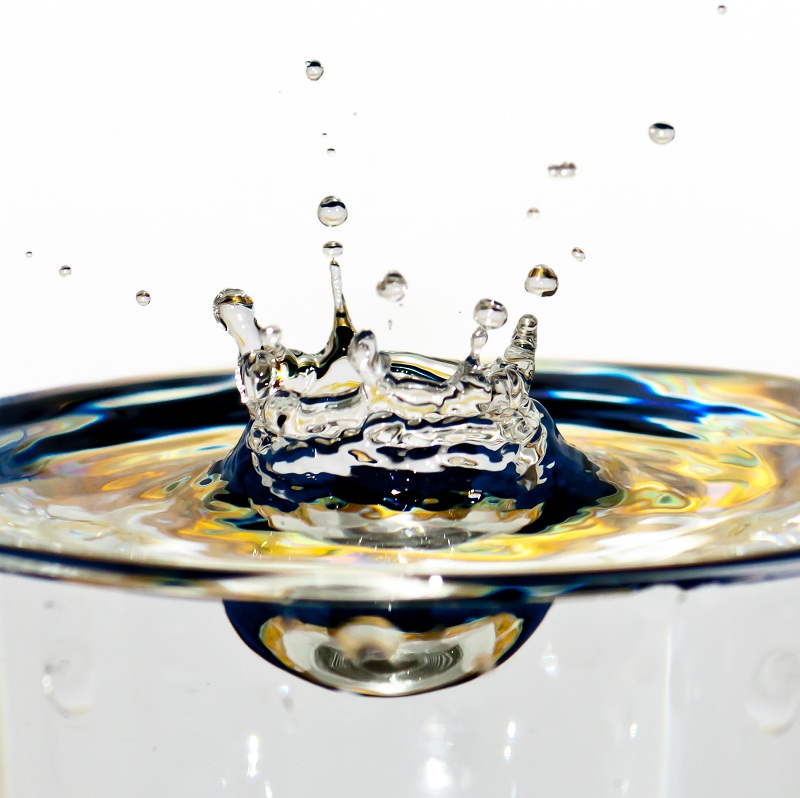Healthy living in Romania: the water we drink

 This week's Healthly Living in Romania series continues with a piece on water. The water we drink, we use for the plants in our gardens, we bathe into. Many have questioned the quality of water in Romania. Our contributor Delia Burhnam dives into the subject.
This week's Healthly Living in Romania series continues with a piece on water. The water we drink, we use for the plants in our gardens, we bathe into. Many have questioned the quality of water in Romania. Our contributor Delia Burhnam dives into the subject.
As a response to several readers’ comments, this week I would like to tackle the subject of water. The human body is made up of approximately 80% water, which obviously means that the quantity and quality of the water we drink is of great importance to human health. Water is to the body as petrol is to a car! Many physical issues are actually caused by the dehydration of our bodies which could be prevented by drinking at least 2 to 3 litres of good-quality water daily. If you regularly drink caffeine, tannin or soft drinks it would be advisable to increase the quantity of water you drink as these types of drinks dehydrate the body.
We all know that this is a global challenge but Bucharest faces plenty of them when it comes to a clean and healthy water supply. Even though Romanian water is purified, it can still contain heavy metals, dust, sand, recycled medicine, excessive hardness, nitrates, chemicals, and the elderly piping system or even newer plastic pipes do nothing to help the situation. Other sources of pollution are often agricultural and industrial, as many pollutants enter the water table through waste being dumped on and or directly into rivers.
Water in other areas of Romania may well be of a much better quality of course, and it would be interesting to hear your experiences, but on the other hand, pollution is not localised to just one area, such as Bucharest. My first year in Romania was spent in Buzau, but the water quality was not much different from Bucharest, but I know that this varies greatly. Well, water is often of a much better quality than tap water if you are able to use this in your area! If you have stayed at a traditional Romanian house without connection to the water mains, you may have your own stories.
Despite the fact that Apa Nova (Bucharest) of course treats and filters our water supply, many Romanian doctors still do not recommend drinking tap water. Bucharest has a problem with fresh quality water supply & lack of working purification stations. A Romanian did an interesting filter test with tap water- more details here.
Besides cleanliness, the natural quality of water is also extremely important. Over the last couple of decades, people have begun to study the idea of water being an energy source, i.e. “Living water,” containing natural crystals which are easily absorbed and resonate with the body’s natural energy. Many studies of tap water have shown that its natural crystal no longer exists due to the “cleaning” treatment it undergoes before being piped round the city. This means that the body may find it difficult to absorb this type of water as the water does not resonate with the body’s energy. As a result, you may have often experienced bloatedness after drinking tapwater.
Please feel free to have a look at the following if you are interested in this subject: Masaru Emoto- wikipedia, website, Youtube video, another Youtube video.
Many other interesting theories abut how water can be used as a treatment have also been expounded and researched here.
Having lived in Bucharest for the last 8 years, and observed the external effect that Romanian water had on my skin, I gradually understood that this was also having an adverse effect on my insides!
I invested in a water filter and optimizer (which energises and mineralises the water) which has made a huge difference to my quality of life. I use this filtered water for cooking and all my drinking needs (boiling vegetables, making stews, brewing tea etc.) which is sometimes overlooked, but equally important in terms of what we ingest. I also make sure I give my cats this water, and water any flowers with this, and I have seen myself how much longer a bunch of flowers actually “lasts” when fed with living water.
In addition to drinking water, I would recommend investing in a showerhead filter so you can wash in cleaner water as the body absorbs a large quantity of water whilst bathing / showering. I also use the showerhead to wash my fruit and vegetables.
Regarding other types of water we use, if you are a swimmer then I would advise you to try out different pools to see which you prefer as these also vary greatly in cleanliness. I personally have never had any health problems caused by swimming in Romania but you could try the following out: Pescariu Sports & Spa, World Class, Club Floreasca.
If you are interested in finding out more about filters and showerhead filters please get in touch with me!
Looking forward to hearing your feedback or suggestions for future articles!
Take care of yourselves,
Delia Burnham, Healthy Living Fan, delia.burnham@gmail.com












